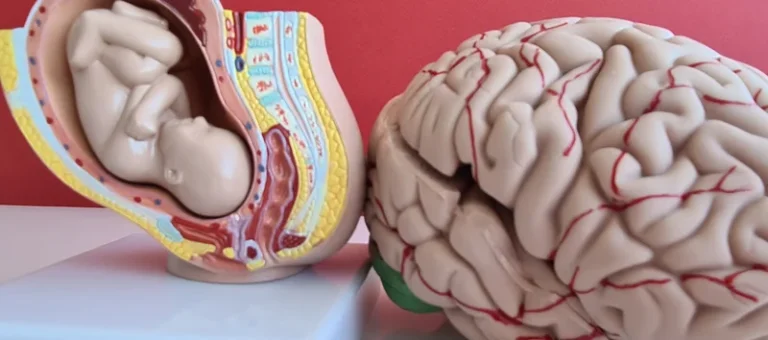
It is likely – for a wide range of reasons – that the condition is under-diagnosed. This means that the number of people living with ARBD is probably higher. When a person starts drinking more than around 25 units per week on a regular basis, it may start to affect their ability to think and function properly.
How alcohol can damage the brain

The Lancet review by Livingston et al. [1] showed that the risks of heavy drinking and AUDs for dementia have been underestimated. The French hospital cohort study, indicating that AUDs represented the highest RR for dementia of all modifiable https://ecosoberhouse.com/ risk factors for dementia, determined that alcohol use needs to be taken into consideration by our health and social welfare systems [13]. Replication studies from other countries would also improve the evidence base [75].
Signs and symptoms
However, a 2017 study found that even moderate amounts of alcohol consumption over many years lead to shrinkage of an area of the brain involved in the formation of new memory (the hippocampus). The scientists could not definitively conclude whether this change was due to a temporary shift in cellular fluid versus actual cell death. Fifth, caution is required when applying our results to ethnic groups other than Korean individuals, because the genetic background for alcohol metabolism39 and drinking culture vary depending on ethnicity.
Check blood pressure and cut down on wine o’clock
The cerebellum is the part of the brain that controls coordination and balance. These symptoms can occur in addition to the symptoms of alcohol withdrawal. In conclusion, Dr. Vossel questioned whether the mice could be experiencing withdrawal symptoms and if this was more pronounced in the Alzheimer’s disease mouse models. “Animal models of Alzheimer’s disease are inherently challenging as mice do not naturally develop the disease. We have to give them multiple mutations that would be deadly to a human just to see any pathology,” Dr. Hunter further noted.
- The research was undertaken by CF (Carnall Farrar Ltd) using the records of 26,000 people with dementia, dating back seven years.
- Sometimes, nutritional supplementation can help prevent the progression of this type of dementia.
- They also found that alcohol abuse as a first symptom occurred in 1.4 percent of all patients, five times more frequently in patients with bvFTD than those with Alzheimer’s-type dementia.
- Subgroup analysis using information from a third examination showed consistent findings regarding a subsequent change in drinking level, supporting the robustness of our results.
- We have to give them multiple mutations that would be deadly to a human just to see any pathology,” Dr. Hunter further noted.
Terminology

Quality of life and life expectancy vary significantly from person to person. Talk to a doctor to address your symptoms and learn how you can manage and, in some cases, even reverse signs of your illness. Thiamine works in the brain by helping brain cells produce energy from sugar. If there is a deficiency of thiamine, brain cells do not produce enough energy to function properly. People may also have motor difficulties due to impaired coordination and trouble walking, which can lead to safety concerns.
In summary, neuropsychological profiles differ between people with healthy aging, AUD, WKS, Alzheimer’s disease, and other subtypes of dementias. Although AUD, WKS, and Alzheimer’s disease all affect memory processes, the effects of Alzheimer’s disease on mnemonic functions are greater than those observed in AUD and WKS. Find out about Wernicke–Korsakoff syndrome, a condition caused by drinking too much alcohol, including information on symptoms, diagnosis and treatment. People who are diagnosed with ARBD are usually aged between about 40 and 50. This is younger than the age when people usually develop the more common types of dementia, such as Alzheimer’s disease.
In addition, about 40 to 60 percent of people who experience chronic alcohol misuse also experience alcohol-related myopathy. Researchers have not determined if this is caused by the effects of alcohol on the brain or is the result of thiamine deficiency. The researchers observed cognitive impairments in the mice subjected to alcohol treatment approximately 2 months before the typical timeframe when such impairments would manifest. During the middle stages of alcohol-related dementia, symptoms become more severe. People in this stage have more severe memory loss and find daily tasks to be more difficult. People may start to forget family members and close friends, and may find it harder to communicate.
Guidelines for moderate drinking

It’s hard to know what to say to a loved one when you’re worried that their drinking is affecting their health. If you aren’t sure where to begin, consider talking to their healthcare provider or use the resources listed below. Some of alcohol’s effects on memory are apparent — maybe you wake up after a night of drinking and have a bruise you don’t remember getting, or you don’t recall any of the night’s previous events. Older people are also more vulnerable to injuries from falls due to changes in eyesight, spatial recognition, and bone health.

What Is Alcoholic Dementia?
- Drinking can cause memory loss on its own, independent of a person’s cardiac health, smoking status, or age, said Segil.
- But delirium tremens is a medical emergency and requires a hospital stay.
- The young-onset of some of the most common types of dementia are described on this page.
- It isn’t easy to cope with alcohol-related dementia, but there are resources that can help.
This may be due to the condition itself, but it is also influenced by the fact that most people who develop this condition have used alcohol heavily, creating additional health problems. Studies show that about 50% of people with Wernicke-Korsakoff syndrome only live eight years after reaching this stage. For doctors out there, when you see patients who have late-onset alcoholism, which is defined as happening after the age of 40 or older, perhaps these people need a little more attention and an evaluation can alcoholism cause dementia for a neurologic disorder. We’re not saying that this is happening for everyone who develops this, but it is possible that the drinking is the result of a medical condition that they don’t really have any control over. People may have these accumulated risks, but they may have genetic or environmental factors that have a protective effect, and they never experience cognitive decline related to alcohol use. Those same factors, along with other health conditions, may put them at greater risk.

Comentários